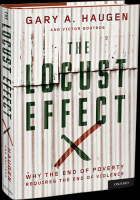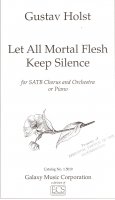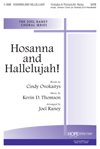Chick-fil-A remains my favorite fast food restaurant, ever. I like the company; friends who have worked there say it's a good place to work. I like the fact that they are closed on Sundays. Well, okay, I've more than once wished I could eat there on a Sunday, but I do appreciate that they take—and give their employees—the day off. I also like the fact that, although not required here to do so, they post the calorie counts of their meals on the menu.
None of that, however, would of itself induce me to eat there. That takes good food. For the genre, it's great food. If we're in need (or want) of a quick, easy meal, and there's a Chick-fil-A nearby, and it's not Sunday, there's no debate: Chick-fil-A is my first choice. Their chicken sandwiches—especially the spicy versions—are the best I've eaten anywhere, including those from my own kitchen. Their waffle fries are very good, their lemonade is real, and their breakfast biscuits? ahhh!
Why this paean? We just returned from breakfast at our local Chick-fil-A: a spicy chicken biscuit for me, and their new grilled chicken sandwich for Porter. Ketchup and barbecue sauce came with our meals, but we brought them home untouched: the food was that good, unadorned. I could easily have eaten two of those spicy chicken biscuits—except, of course, for the above-mentioned calorie counts.
Even better: thanks to coupons, our breakfast was totally free. This is a case where I will not say a meal was worth what we paid for it! And despite our not spending a cent, the man who took our order was friendly, cheerful, and gracious, and did not hesitate to fix us the chicken sandwich (normally a lunch and dinner item) during early breakfast hours, only apologizing that we had to wait five minutes.
Now if only Connecticut would get with the picture. The closest Chick-fil-A to Old Saybrook is north of Springfield, Massachusetts!
From a Facebook friend, a facinating article on the schwa, which leads to this video on English as a stress-timed language. They mention Spanish and French as syllable-timed. I wonder about other languages, such as German and Swiss German, but do not have time at the moment to investigate. And I thought we were just being lazy.
Permalink | Read 2423 times | Comments (2)
Category Just for Fun: [first] [previous] [next] [newest]
 The Locust Effect by Gary A. Huagen and Victor Boutros (Oxford University Press, 2014)
The Locust Effect by Gary A. Huagen and Victor Boutros (Oxford University Press, 2014)
First world problems, even for the poor, really are different from those of the developing world. That doesn't mean they're not problems; dearth and excess are both damaging. Think starvation versus industrialized food and an obesity crisis; no schools versus an educational system with a stranglehold on our lives; lack of basic medical care versus a health care machine that takes birth and death away from home and makes us dependent on drugs.
We also have a hyperactive legal system that shackles our lives and has taken common sense out of the rule of law. The developing world? Rampant, violent crime and a legal system that protects the perpetrators and victimizes the victims.
Nearly fifty sticky-notes festoon my borrowed copy of The Locust Effect, but I don't have time to type them out. I could wait, but I'll never have time to do justice to the book—or more importantly, to its ideas. So I'm going to take the easy way out and suggest, strongly, that you check out the websites of The Locust Effect and of the International Justice Mission.
The Locust Effect is an extremely important book. Essential, really, for anyone who cares about the poor and suffering of the world. It lays out a strong and effective case that the most basic, most critical, and least recognized problem of the world's poor is the lack of an effective system of justice to protect them. Occasional police brutality and corrupt lawyers notwithstanding, we take it for granted that our legal system is there to protect us from crime. For much of the world, however, that is simply not the case. What good is it to provide seeds and farming tools if the land with all its crops is likely to be stolen? To promote the education of girls if they can expect to be raped on the way to school—or by the teacher? Why provide medical care if the man cured from his disease then rots in jail for 30 years just because he happens to be walking down the street when the police are out, press-gang style, looking for someone, anyone, to convict for a crime committed by someone who has paid well to be acquitted?
If the websites don't convince you, then by all means read the book. If you worry that the authors would take anything away from programs that feed the hungry, provide microloans to impoverished women, build libraries and schools, or otherwise meet other critical needs, then read the book. If you believe the need, but fear the problem is hopeless, read the book. The book's 346 pages provide exhaustive documentation of both the problems and approaches that have shown great success. But "exhaustive" is the operative word. As befitting lawyers, the authors dot every i and cross every t, and like Presbyterian preachers make their points over and over again. I highly recommend reading the book, but if there are easier and faster ways to get to the ideas, I'm sure the authors would still approve.
Violence against the poor is a difficult and dangerous problem to solve, but not impossible. There is no magic bullet; it takes courage and hard work and a whole lot of patience and perseverence. The first step is bringing this hidden and unacknowledged crisis to light, and The Locust Effect does that well.
Sunday, May 18, 2014. Thinking especially of a special person who celebrates her 50th birthday today!
Hosannah and Hallelujah! (Hope Publishing, C5688). No YouTube video this time; click on the link to listen.
They don't come any more enthusiastic about public transportation than us, so we were thrilled when SunRail brought a commuter train to Central Florida. There were many disappointments, such as learning that the engines are diesel instead of electric, and most especially with the schedule: the trains do not run on the weekend. During the week, the best frequency is every 30 minutes during rush hour, and midday the trains are one, two, or even three hours apart. What's more, the last train leaves downtown Orlando at 9:30 at night, making it completely useless for anyone planning an evening in town. This is not the way to win a very skeptical population to mass transit. But, we figured, it's a start. If SunRail can prove itself useful for commuters, perhaps it can grow into a real train for the rest of us.
On Friday we decided to check it out. I adore train travel. My life is full of positive emotional associations with trains, from commuting to my first job on the Philadelphia Main Line run, to a luxurious ride from Rochester, New York to Springfield, Massachusetts early in our marriage, to my unplanned "rest and recovery" trip from Florida to Connecticut on September 13, 2001, to the easy and relaxing tourist travel in cities at home and abroad. I planned to love the experience, sitting with Porter and a friend at one of the table seats, watching the world pass by out the window. It was a glorious day, too: sunny and dry, with temperatures in the low 70's.
Alas, it was not to be. Porter described our experience in his subsequent e-mail to SunRail: (More)
Permalink | Read 3005 times | Comments (9)
Category Everyday Life: [first] [previous] [next] [newest] Conservationist Living: [first] [previous] [next] [newest]
The Space Shuttle may no longer be flying, but yesterday we saw a perfect Delta IV rocket launch grace the sky to the east. What a lovely sight!
The weather was beautiful, too, with temperatures that kept our doors and windows open all day. I realize that for most of you such a statement means the weather was finally warm enough, but no: we've been enjoying a two-day respite from high humidity and temperatures in the 90's. At this very moment it is 67 degrees on our back porch. Heaven!
Permalink | Read 2348 times | Comments (1)
Category Everyday Life: [first] [previous] [next] [newest]
 The Silent Swan by Lex Keating (AltWit Press, 2013)
The Silent Swan by Lex Keating (AltWit Press, 2013)
Having found myself in the vicinity of Stephan's Kindle, I could not resist reading his copy of The Silent Swan. Were it not for his positive review, I would have passed on the opportunity, as coming-of-age stories and romances are both near the bottom of my genre preferences. (You can read his review here.) However, The Silent Swan is so much more than that. (The cover is unfortunate. Maybe not for the author, since in my observation that kind of cover sells. But it hardly does justice to the book.) What really hooked me is that the story is a mystery, and I'm a sucker for mysteries. Trying to unravel the truth kept me reading, and the ending did not disappoint. Overall, I give the book four of five stars. But for the romance/teen angst/school story genre, it deserves at least a ten. Ditto for the "modern Christian fiction" genre. The bar is really, really low in those categories, which makes The Silent Swan a standout.
It almost lost me in the first chapter. I suppose that if a character is going to develop gradually over 580 pages, it helps to start from a bad place. I really hate it when people do stupid things in books, and the protagonist was being really stupid. Granted, the action takes place in a school, among hormone-laden teenagers, which is practically a recipe for stupidity ... but still.
I've said this before—in my review of Stephen Lawhead's The Skin Map—but it's equally true here: "My least favorite [parts of the book] were the drawn-out descriptions of the physical appearance of every female character encountered, and the even more interminable battle scenes, both of which were obviously included for the more testosterone-laden among us." The Silent Swan is clean, almost grandchild-safe (and probably better than much of what our eldest has already read), but violence and sex still sell to some segments of the audience. I found the brotherly squabbles (and fights) annoying, even boring; and if this story provides an accurate description of what goes on in a teenage boy's mind whenever he sees a woman ... let's just say I'm feeling a lot better about burqas. It's not porn, but even I am enough of a feminist to find it outrageously insulting. (Yet this is 'way better than so much of what's available and aimed specifically for the teenaged audience.)
There are some points where the story stretches my "willing suspension of disbelief" too far. It is unfathomable that in any family these days, let alone a family with a full-time employed mom, kids could grow up so ignorant in the kitchen. Haven't they heard of cookbooks? Or allrecipes.com? I can see asking them to have meal responsibilities, but what parents expect so much from someone with no preparation at all? I actually know someone who was taught to swim by being thrown into the middle of a lake—but even then the instructor was there to keep her from drowning.
The main female character is also omni-competent in so many areas that for some that will be the least credible part of the book, but I see it as a strong point: I know teenagers can be and do so much more if allowed to break out of their media- and school-induced comas! If she is a bit too much of a superhero, she's also the most human and reasonable of all the characters, and in her courage, perseverance, intelligence, and (non-romantic) love is a positive female figure—something I find very rare.
I mentioned that The Silent Swan is a standout in the modern Christian fiction genre. Frankly, I don't know whether or not the author intended it to have that label. Certainly J.R.R. Tolkien would not have accepted such a designation for his works, and they are some of the best Christian fiction extant. But it deserves consideration, because I could see this book selling in a Christian bookstore. Certainly the cover looks like the Christian romances I've seen there. Yet one of its strengths is that it's a Christian novel that is hardly recognizable as a Christian novel. It's not The Lord of the Rings, but is nonetheless infused with Christian attitudes and values while completely eschewing overt Christian language. Stories with altar calls just. don't. work. At the same time, it's not one of those books by postmodern Christian authors, who throw in bad language and questionable content just to prove they're "authentic" and without religious hangups.
The Silent Swan is both too hard and too easy on the foster care system, so I'll average that out to okay.
All the sibling violence to the contrary, the protagonist's family is solid, full of mutual respect and love, and with no quarter given for disrespecting the parents. That, sadly, is a rare quality in the books that are pitched to children these days. And if his mind starts out one-dimensional when it comes to women, he does grow considerably, and in all the right directions. Respect for family; love as something greater than sex; the idea that life might be more serious than going to prom; basic honesty; resisting seduction; the importance of setting oneself up for success in potentially risky situations (e.g. being in a group rather than alone with your girl on a deserted beach)—these are not popular attitudes, especially in young adult books, but are presented as good, reasonable, and believable in The Silent Swan.
The Silent Swan is a well-constructed and clever take on one of Grimm's fairy tales, The Six Swans. I won't say the writing is great, but it's good, and that's saying a lot in these days of slap-dash writing, and of editiors and proofreaders who apparently have time to do neither. I've recommended it to our library for purchase, and I hope Lex Keating has another book in the works.
Note: Now that I have a Kindle, buying books is a harder decision. Susan Wise Bauer's History of the Renaissance World is still on my Amazon wish list; I would have bought it months ago if I could only decide whether to get the physical book or the Kindle version. Unfortunately, it's not part of the Kindle Matchbook program, where you can get the Kindle version for little or nothing if you buy the printed book. While writing this review, I decided to buy the Kindle version of The Silent Swan for myself (it's only $2.99), but then I noticed that it IS part of the Matchbook program, and what if I later decide to get the book, which at the moment is a pricey $17.99? I would have wasted the opportunity. Decisions, decisions. (Amazon Prime members can read the book for free, by the way.)
Sunday, May 11, 2014 The men of our choir, plus a few others from the church, took over for the women in honor of Mother's Day. I felt a little uncomfortable not sitting in the choir loft, but I did have a great seat: just about where the cameras were in the video below. The men sang twice (besides the regular service music): A version of Surely the Presence of the Lord Is in this Place (Lanny Wolfe, arranged by Elmo Mercer, Lanny Wolfe Music), which they did beautifully. What blew our socks off, however, was Amazing Grace (My Chains Are Gone) (Tomlin/Giglio/Newton/Raney), Hope Publishing, C5644). We've done it as a whole choir before, but I just love what the men did with it.
This video is courtesy of our friend and fellow choir member, Beth, who deeply regrets not getting the whole song. It took a while for people to realize that this was a moment to be preserved. I didn't even think of my own camera, sitting under my chair in my purse. You may be able to see a longer—though still not complete—version if you are friends with me on Facebook. Or maybe not; I've discovered that when I share other people's posts, sometimes my friends can see them, and sometimes they can't. In any case, I'm so grateful to have this much for a reminder of how lovely it all was. (Heather, you know the guy behind Dad, too.)
Sunday, May 4, 2014 One of our favorites.

Let All Mortal Flesh Keep Silence (Gustav Holst, Galaxy, 1.5019)
I still have not read Anthony Esolen's Ten Ways to Destroy the Imagination of Your Child, recommended to me by a knowing friend, because (1) our library, which has otherwise been marvelously responsive to my suggestions for books to acquire, declined this one with the inexplicable excuse, "I'm sorry but this title does not fit our collection guidelines and we are unable to order it. It is a scholarly, university-level book."; and (2) while I expect I'll agree with much of what he says, I also suspect a sexist vein in his philosophy that would drive me nuts the way John Eldredge did. Someday, maybe.
In the meantime, Esolen continues to fascinate me. I can't personally say much about the new Common Core standards and all the kerfuffle they have generated, because I am blissfully beyond that stage of life in its practical application and therefore have not given the mess much attention. Nonetheless, I harbor an automatic suspicion of anything that moves educational decisions farther up the food chain, and so Esolen's How Common Core Devalues Great Literature sounds great to me.
The Common Corers get things exactly backwards. You do not read The Wind in the Willows so that you can gain some utilitarian skill for handling “text.” If anything, we want our children to gain a little bit of linguistic maturity so that they can read The Wind in the Willows. That is the aim. I want my college students to read Milton so that they can enter the world that Milton holds forth for us. I show them some of his techniques as an artist, since they’re mature enough to appreciate them, but not so that they can reduce the poem to an exercise in rhetoric. I show them those techniques so that they may understand and cherish the poem all the more. I want them to become “friends” with Don Quixote and Sancho Panza. I want them to climb with Dante and Virgil the glorious mountain of Purgatory. I want them to stand heart to heart with the Geats as they watch the flames devour the body of their deceased king Beowulf.
Those are the important things, the permanent things. If you are not reading The Wind in the Willows as Theodore and Edith Roosevelt and their children were reading it, then you should not read it at all. If you are turning Tom Sawyer into a linguistic exercise with a veneer of intellectual sophistication, then you should not read Tom Sawyer—in fact, you cannot have understood a blessed thing about Tom Sawyer. If you are reading The Jungle Book for any other reason than to enter the jungle with Mowgli, Bagheera, and Baloo, then you had best stay out of the world of art, keep to your little cubbyhole, cram yourself with pointless exercises preparatory for the SAT, a job at Microsoft, creature comforts, old age, and death.
Preach it, brother!
At about 4:30 Friday afternoon, I became aware of some rustling in the bushes outside my office window. Normally this is just the grey squirrels, but our resident armadillo occasionally pokes around, so I got up to look. It was neither.
Permalink | Read 2304 times | Comments (4)
Category Everyday Life: [first] [previous] [next] [newest]
I've said before that I love going to a church that has services every single day between Palm Sunday and Easter, and I love even more living close enough that there's little hindrance to attending them. Beyond ordinary busy-ness, that is, which we're supposed to be giving lower priority during the most momentous week of the Church Year. Writing this up so late, I'll no doubt miss something, but GEIBTP.
Palm Sunday I miss processing with whole palm branches instead of little leaves, but at least they were still cut from the yard instead of purchased. The best part was the music provided by our own little orchestra! It was great being led by trumpets: we stayed together much better than we usually do while trying to sing All Glory, Laud, and Honor spread out all around the church and the parking lot. The orchestra was amazing: these are middle schoolers, some of whom just started playing their instruments this year. Great music? No. Helpful? Very much so. Inspiring? Yes, yes, yes! And I was really impressed by their endurance. Other hymns, songs, and anthems:
Ride On! Ride On! In Majesty! (tune: The King's Majesty); A Simple Word of Grace; It Was Finished on the Cross (solo); At the Name of Jesus (tune: King's Weston); O Sacred Head Sore Wounded (tune: Passion Chorale). Plus an anthem, which I'm pretty sure was the beautiful To Love Our God (Mark Hayes, Hinshaw Music HMC1576).
Have I made it clear enough that our church likes to be active in worship, to sing, and to feast?
UPDATE 11/5/19 Aaaaargh! As I've pointed out innumerable times, when Flash in these posts was automatically converted to iframe, which needed to be done, between the first embedded video and the ending text all other videos (and associated text) were accidentally deleted. Normally this doen't matter much, but in a post like this, with a week's worth of information, it really hurts. Still, it will stay like this until I find time and priority to see if there's a way to recover the data.



